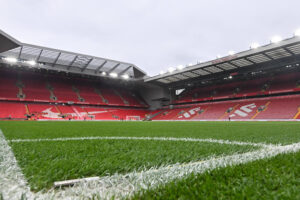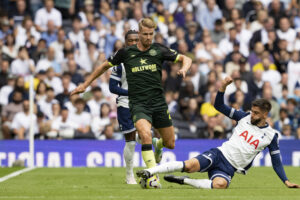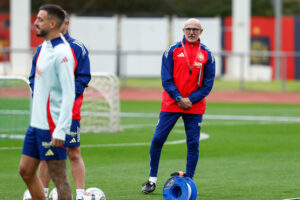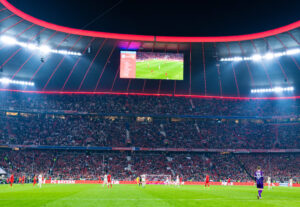The list of World Cup winners is invariably short. Since the tournament began in 1930, only eight nations have emerged as champions. Of those, a mere five own multiple championships as can be seen below.
Brazil (1958, 1962, 1970, 1994, 2002)
Germany (1954, 1974, 1990, 2014)
Italy (1934, 1938, 1982, 2006)
Argentina (1978, 1986)
Uruguay (1930, 1950)
England (1966)
France (1998)
Spain (2010)
As is abundantly clear, Spain joined the ranks in 2010. That year, two teams hoped to achieve World Cup glory for the first time with La Roja facing the Netherlands. Ultimately, disappointment abounded for the Dutch with Andres Iniesta’s extra-time goal condemning the Oranje to an 0-3 all-time mark in the championship match.
10 of the 16 teams who advanced past the group stage in 2018 are looking for their first World Cup trophy. Most fans and pundits probably have their own mental hierarchy in terms of the actual legitimacy of those sides’ tournament aspirations. But based on how they performed in their three group games, four stand out.
Which Four Teams in the Round of 16 Have the Best Shot at Becoming First-Time World Cup Winners?
Belgium
Belgium undoubtedly came into this year’s tournament among the favorites. Though they were in a fairly top-heavy group that included England alongside lesser heralded Tunisia and Panama, the Red Devils got the job done. They won all three games including a 1-0 win over England on the final day of group play, courtesy of a curling far post screamer from Adnan Januzaj.
WHAT. A. GOAL.
Adnan Januzaj scores a beauty for Belgium against England #ENG 0-1 #BEL #WorldCuppic.twitter.com/pGqVZX5yAa
— Joe Prince-Wright (@JPW_NBCSports) June 28, 2018
The term “golden generation” clearly applies to this Belgium outfit. Its Premier League heavy squad is a veritable who’s who of household names that anyone who follows the global game is familiar with. Their average age of 27.13 years old is middle of the pack among the 32 teams at the tournament. What that indicates is that the core of this bunch is in the prime of their careers.
Perhaps the biggest hint that they’re on the cusp of a championship run centers around two key concepts. Having players who can consistently create chances and those who clinically finish them. Belgium’s 40 key passes are third at the tournament with both Kevin De Bruyne and Eden Hazard among the top 20 with a combined 15. Hazard has added two of his team’s nine total goals (best haul in the group stage) to go along with four from Romelu Lukaku. So clearly this side is making the most out of their opportunities in the final third. And that’s a very good sign heading into the knockout round.
Colombia
With their 1-0 win over Senegal, Colombia clinched a second-straight appearance in the round of 16 at the World Cup for the first time ever. Their two-game winning streak to close out group play served as a bounceback after a disastrous loss to Japan in the opener. It also squashed a somewhat prevalent narrative surrounding Colombian football concerning not living up to expectations.
What transpired at the 1994 World Cup was a prime example. Considered a dark horse to win the tournament, they ended up crashing out in the group stage. American fans are well aware of the USMNT’s 2-1 upset of Colombia at the Rose Bowl that year. It came with a tragic aftermath when Andrés Escobar, whose own goal opened up the scoring, was murdered a few days after returning to his country. You won’t find a better retelling of that story than in the ESPN 30 for 30 documentary, The Two Escobars.
But back to the present. Can Los Cafateros make a run in Russia? Their first knockout stage game is an immensely momentous challenge with England standing in their way. The two teams have one previous meeting in the World Cup. It took place in 1998 with the Three Lions adding fuel to the above narrative. Their 2-0 victory eliminated Colombia in group play four years after the calamity that transpired in the US.
James Rodriguez’s status remains a huge question mark. He came off in the first half of Thursday’s win over Senegal when he reaggravated a calf injury. His absence would be a blow to a side who finished the group stage with the third fewest number of key passes. That said, they made the most of them considering they’re top 10 in goals scored. And they could make do without him with Jose Quintero and Juan Cuadrado accounting for nine chances created to his three.
A win certainly sets them up for a spot in the semifinals considering they face the winner of Sweden-Switzerland in the quarters.
Croatia
Of the three teams who won all their group matches, two are hoping to win their first-ever World Cup. Croatia is one of them and their group campaign included quite the result: a 3-0 demolition of Argentina. Say what you want about the soap opera that is the Argentinian camp in Russia, this Croatia squad is legit. And much like Belgium, their average age (27.43 years old) gives them a confluence of youth and experience necessary to go far.
The bread and butter of this team is a world-class midfield that includes Luka Modric and Ivan Rakitic. Though they’re enemies at club level as part of the Real Madrid-FC Barcelona archrivalry, their work as teammates at international level has this side buzzing. Their dynamism in the center of the park shows in the fact they finished the group stage one-two in tackles, passes, and chances created.
Waiting in the wings on Sunday is Denmark. They proved they could grind out a result when they held another tournament favorite, France, to the only 0-0 stalemate of the group stage. The defensive prowess of the Danes is evident in that they allowed only a single goal in group play. But so did Croatia. And what puts them over the top from an attacking standpoint is they were the only team to score two or more goals in all three group games. That combination of stoutness in defense and sharpness near the opponent’s goal is what makes them a team to watch on the weaker side of the bracket.
Portugal
That brings us to the current kings of Europe. Their pragmatism under Fernando Santos spearheaded their success in France two years ago. They certainly didn’t dominate then and it’s pretty much the same in Russia. Cristiano Ronaldo bailed them out against Spain and gave them an early lead they wouldn’t relinquish against Morocco. But in the group finale against Iran, they exhibited the shakiness that has seen them prematurely bow out of multiple World Cups since the turn of the century. Right after Karim Ansarifard’s penalty tied it, Portugal nearly conceded another goal which would’ve sent them packing had Mehdi Taremi’s strike found paydirt instead of striking the side netting.
So why is A Selecão das Quinas among this foursome? Because this is a team built for the World Cup knockout round. Yes, the group stage impressed mightily in terms of its entertainment value. But if history is any indication, games can turn into tactical chess matches when it’s win or go home. Portugal proved they could checkmate their opponents two years ago. But their talismanic presence in Ronaldo is an ace in the hole if they have to turn this into no-limit hold ’em poker and risk their stack by going all-in.
Ronaldo and company are second out of the gate when they face Uruguay on Saturday. It pits them against the only team that didn’t concede a goal during the group stage. Not only that, but the iconic duo up top of Luís Suarez and Edinson Cavani proved their goal-scoring quality in a group they ultimately won. At 33, the general consensus is that this is Ronaldo’s World Cup swansong. His nation’s success may hinge on whether or not the juxtaposition of his goal-scoring form and his coach’s tactical acumen can culminate with ultimate achievement.






